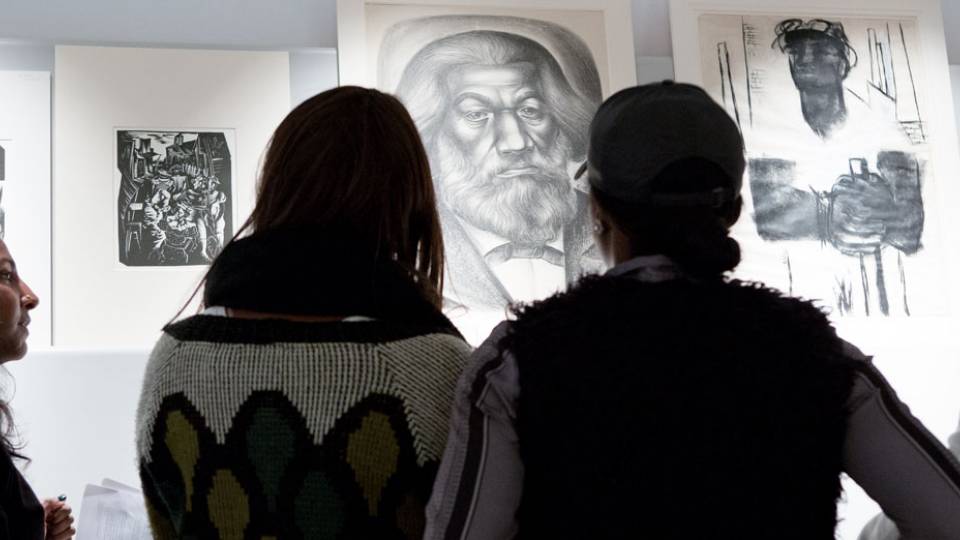Twenty-two faculty proposals to develop new classes or redesign existing courses have received funding this year through Princeton University’s 250th Anniversary Fund for Innovation in Undergraduate Education.
Established in 1996 in conjunction with Princeton’s 250th anniversary, the fund supports the University’s “central and enduring commitment to outstanding undergraduate teaching.”
Each year, the fund supports initiatives that allow faculty to explore new pedagogical methods to enhance student learning, foster interdisciplinary connections, and redefine teaching and assessment practices. This year’s awards address a wide range of new and enhanced courses, embracing advances in classroom technology and supplementing the undergraduate curriculum across multiple concentrations and course levels. The selection committee reviewed more than 30 proposals.
“Transformative teaching and learning is one of the single most important things we do as a campus,” said Dean of the College Jill Dolan. “Many of this year’s proposals demonstrated broad attention to important social issues and a commitment to using cutting-edge, creative classroom practices to address them through interdisciplinary knowledge. The committee also noted important innovations in introductory courses in STEM fields, for which faculty proposed new teaching methods to enhance learning and to increase student participation in these concentrations. I’m delighted by all of this innovative work and look forward to seeing how these projects will spark more pedagogical creativity in the future.”
Associate Dean of the College Lisa Herschbach, a member of the selection committee and director of the McGraw Center for Teaching and Learning(Link is external), added, “McGraw looks forward to supporting this year’s awardees as they implement new instructional technology and explore innovative avenues of teaching and assessment.”
A sample of course proposals that received funding this year is listed below. The full list of 22 awardees(Link is external) is available on the Office of the Dean of the College website, along with a gallery of videos(Link is external) highlighting courses funded by awards in past years.

Faculty awardees of previous 250th Anniversary Funds include, from left, Sigrid Adriaenssens, assistant professor of civil and environmental engineering, for “Mechanics of Solids”; Adam Elga, professor of philosophy, for “Argument Mapping”; and Kosuke Imai, professor of politics, for “Visualizing Data.” (Video stills courtesy of the Office of the Dean of the College)
Environmental Studies: Stephen Pacala, the Frederick D. Petrie Professor in Ecology and Evolutionary Biology(Link is external) and former director of the Princeton Environmental Institute(Link is external), will create a course to examine a collection of global environmental crises. In the coming decades, as Princeton undergraduates reach the peaks of their careers, the world will need to deal with the environmental nexus of climate change, biodiversity loss, and challenges to our supplies of food and fresh water. The course will address multiple dimensions of the issues, including scientific, political, social and ethical aspects.
Engineering: Andrew Houck(Link is external), associate professor of electrical engineering(Link is external), proposes a new look at the pathway to satisfy first-year engineering requirements. He will develop a suite of courses that focus on design and hands-on experience as well as providing the scientific and mathematical foundations needed for the engineering curriculum. The courses will introduce the concept of service as a core value of engineering, and will incorporate a broader liberal arts perspective while also promoting access and inclusion.
Art and Archaeology: Anna Arabindan-Kesson(Link is external), assistant professor of African American studies(Link is external) and art and archaeology(Link is external), will create a course that analyzes the visual and material culture of the trans-Atlantic slave trade from the 18th century to our contemporary moment, drawing heavily on Princeton collections. The course will examine how contemporary art and public monuments have been created, displayed and circulated to memorialize slavery, critique slavery’s legacies and imagine freedom in the Atlantic world. Students will also have the opportunity to curate an exhibition based on their research into material held in University collections.
History: Alison Isenberg(Link is external), professor of history(Link is external) and co-director of the Princeton-Mellon Initiative in Architecture, Urbanism and the Humanities(Link is external), will create new course material along with Purcell Carson(Link is external), documentary film specialist in the Woodrow Wilson School of Public and International Affairs(Link is external). They will explore the 1960s unrest in Trenton, New Jersey, including the events surrounding the death of a black college student who was shot by a young white police officer. Isenberg’s historical perspective brings a new focus to Carson’s course, “Documentary Film and the City,” which will look at the 1960s, race, region, economy and media representation. This collaboration presents a hands-on opportunity to integrate the disciplines of history and documentary cinema; students will produce their own research papers and video sketches.
A number of the awardees received additional financial support through co-sponsorship from the David A. Gardner ’69 Magic Project in the Council for Humanities, the Council on Science and Technology, the Provost’s Fund for Cultural Studies, the Community-Based Learning Initiative, the Quazzo Gift for Online Initiatives and the McGraw Center for Teaching and Learning.



